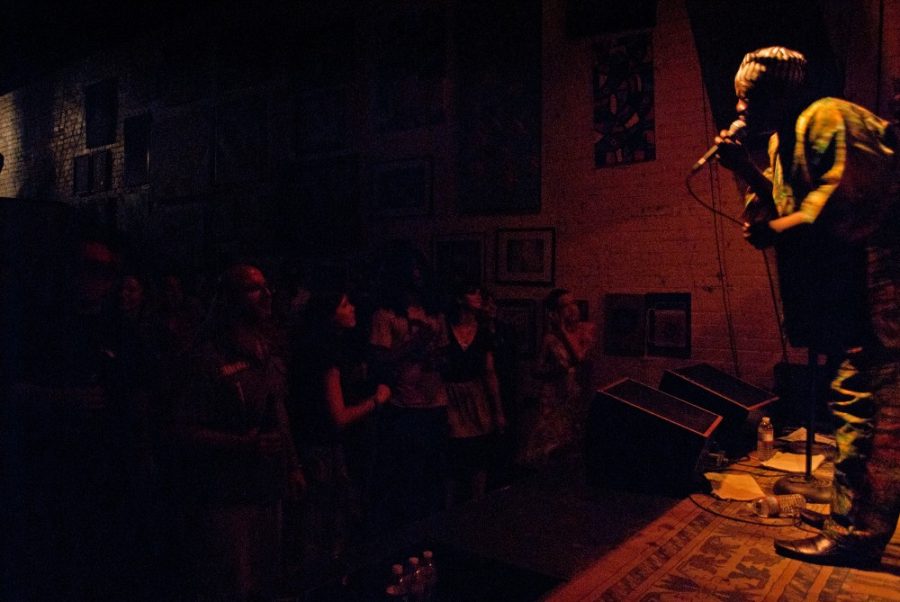Seeing a concert by Sierra Leone’s Refugee All Stars is breathtaking. The music alone proves that this band deserves to be known and loved. Their songs evoke the joy of life and human camaraderie, but to listen to the Refugee All Stars without understanding where they came from is to miss the bigger picture.
The Sierra Leone Civil War began in 1991 when the Revolutionary United Front attempted to overthrow the government. The government response led to escalating and prolonged violence, with atrocities and war crimes committed on both sides. After years of conflict, a British military operation succeeded in defeating the RUF in 2000. The civil war was declared over in January of 2002. More than 50,000 people had been killed, innumerable homes destroyed, infrastructure damaged, and the economy ravaged.
Amidst the horror, six Sierra Leoneans fled to the neighboring country of Guinea and came together to form a band. They wanted to distract themselves and their fellow refugees from the trauma they had suffered, and to break up the monotony of life in the refugee camps. Shortly after they formed, filmmakers Banker White and Zach Niles began shooting a documentary about the Refugee All Stars. The film, released in 2005 and titled “Sierra Leone’s Refugee All Stars,” follows the band across a period of three years. The film shows the band playing for different refugee camps, telling the stories of their individual struggles and their eventual return to Freetown, the capital city of Sierra Leone, to record their first album.
The band that takes the stage now, to someone who has seen the film, is both different and familiar. Bandleader and songwriter Reuben Koroma is still front and center, singing and dancing and beaming at his enraptured audience. Guitarist Ashade Pearce is at his side, and Alhadji “Black Nature” Kamara is present on conga drums and performs the occasional rapping interlude.
Things have changed for the band and for Sierra Leone. It has been seven years since the release of the movie, and 10 years since the end of the civil war. The biggest change for the Refugee All Stars has been increased recognition, said Koroma. He also emphasized the difference it has made on the lives of the band members. “We can take care of our children, send them to school … When we go on tour and make some money, we can return home and solve many problems.”
Koroma said he feels Sierra Leone has been steadily improving as a country, with improved infrastructure and continual development. “The most important thing that really makes me think Sierra Leone is improving is the healthcare,” he said. “There is free healthcare for children under five and healthcare for pregnant women. So because of all this improvement, I’m so happy.”
The Refugee All Stars are not only a tremendously talented group of musicians, but also a testament to the resilience and ingenuity of people. This band came together to better their own situation and bring hope to others around them. Like the country they came from, they have been shaken by the trauma of war and emerged stronger. Sierra Leone is no longer a nation crippled by war; it is a country whose people are proud and eager to rebuild, and the Refugee All Stars exemplify that.









